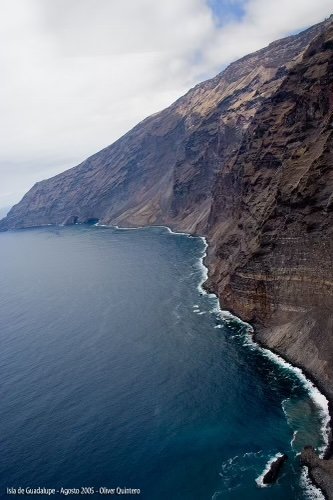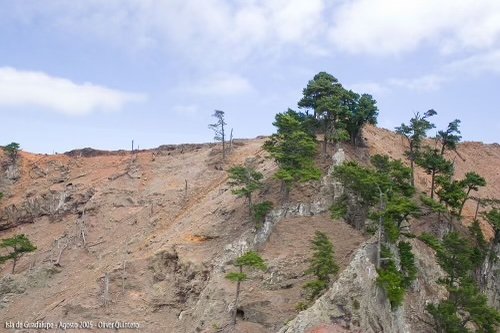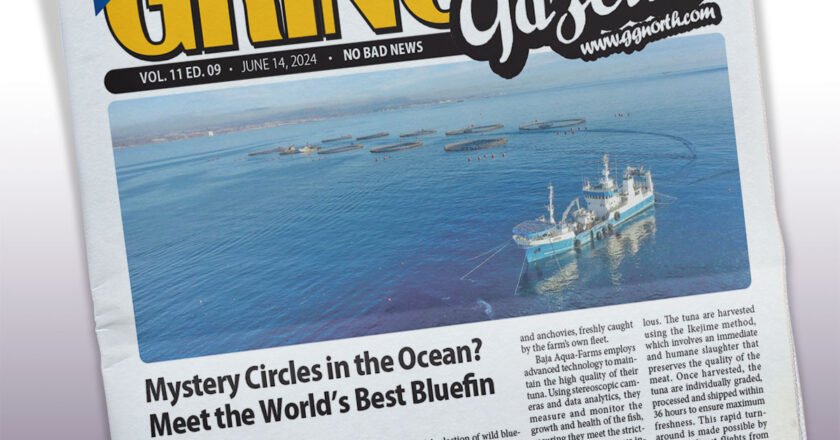Ensenada-San Diego Ferry Schedule Announced. Azteca Ferries has finally unveiled the travel schedules for the much-anticipated Ensenada to San Diego ferry service, although ticket prices remain under wraps. The ferry journey, lasting between two and a half to three hours, is not yet assigned specific days of operation, keeping potential travelers on their toes. Morning ferries will depart from Ensenada at 7:00 AM, reaching San Diego by 9:30 AM, with an afternoon service returning by 5:30 PM. Conversely, San Diego departures are set for 11:30 AM and 7:00 PM, with corresponding arrivals in Ensenada. The company advises travelers to plan ahead to ensure a seamless and enjoyable experience. Despite the delay in releasing ticket costs, excitement is high as this new link promises to boost cross-border connectivity.
Rosarito Real Estate Market Poised for a Comeback. Rosarito’s real estate market, which has seen a 30% dip in sales recently, could be in for a boost this September, thanks to expected interest rate cuts in the U.S. Gustavo Torres Ramírez, President of the Rosarito Business Coordinating Council, is optimistic about a potential 15% rise in property investments. The majority of Rosarito’s real estate buyers are from Southern California, and lower U.S. mortgage rates could make it easier for them to refinance and invest in a second home south of the border. Torres Ramírez believes that the high cost of housing in California makes Rosarito an attractive option. However, concerns over potential judicial reforms in Mexico are causing some investor uncertainty. Still, if the market conditions align, Rosarito could see a renewed surge in real estate development, something that hasn’t happened since the COVID-19 pandemic.
Rosarito in Need of More Police Officers. Playas de Rosarito is in urgent need of over 300 additional police officers to adequately cover the city’s security demands, according to Francisco Javier Arellano Ortíz, head of the local police department. While the current administration has added 50 new officers, this is far from enough to address the city’s growing needs. Complicating matters, some officers are currently out of service due to questionable disability claims, further straining the force. Arellano Ortíz emphasized the importance of continued investment in security and maintaining strong coordination with federal and state authorities to combat crime and violence. He noted that, despite challenges, violence in the area has decreased over the past five years, with a significant reduction in homicides and bank robberies. However, to sustain and improve these gains, the next government must prioritize police funding and avoid fiscal austerity measures that could jeopardize public safety.
Governor Launches “Soy México” Campaign to Simplify Birth Registration. On August 15, Governor Marina del Pilar Avila Olmeda kicked off the “Soy México” 2024 campaign, aiming to make it easier for Mexican-American children and adults born in the U.S. to register their birth certificates in Baja California. This initiative, led by the General Secretariat of Government, started in Tijuana and will extend to other cities like Mexicali, Tecate, Playas de Rosarito, and Ensenada. The goal is to remove bureaucratic hurdles and cut costs for those seeking to obtain Mexican nationality, offering savings of up to 4,500 pesos per person by waiving fees for apostilles and translations. The campaign reflects the state’s commitment to supporting vulnerable families and aligns with President Andrés Manuel López Obrador’s vision of ensuring a dignified life for all Mexicans. Over the coming months, the government will work with local municipalities to ensure that school-aged children and others in need can benefit from this program.
Tourism Committee Gears Up for 2025 Tianguis in Baja California. The 49th edition of the Tianguis Turístico, set for 2025, is shaping up to be a major event in Baja California. With the Rosarito Baja Center as its main venue, this binational tourism expo will be the first of its kind held in northern Mexico. During the official ceremony, Governor Marina del Pilar Ávila Olmeda and Mexico’s Tourism Secretary, Miguel Torruco Marqués, highlighted the event’s significance. Expected to generate an economic impact of 1.3 billion pesos, the Tianguis aims to draw 10,000 visitors, including tour operators from the U.S., Canada, Asia, South America, and Europe. The event is planned for April 28 to May 1, 2025, and preparations are in full swing, with more than 7,100 hotel rooms across Tijuana, Ensenada, Rosarito, and Tecate already designated for attendees. This event is set to make history in Mexican tourism and further boost Baja California’s global appeal.
Sassi del Valle Project Expected to Start in December. The long-awaited Sassi del Valle project, first introduced in August 2023, is now anticipated to begin construction in December, according to Mexico’s Tourism Secretary, Miguel Torruco Marqués. During a recent press conference with Governor Marina del Pilar Ávila Olmeda, Torruco shared his inspiration for the project, which draws from the success of Val’Quirico, a Tuscany-inspired development in Tlaxcala. Sassi del Valle, however, will feature architecture reminiscent of Matera, Italy, and blend elements of Baja California’s historical missions.
While the project aims to bring a European flair to the region, with a private investment of 1.5 billion pesos, its start has been delayed due to pending municipal permits. Despite these setbacks, the project’s foundation stone has already been laid, and locals are hopeful that construction will finally kick off by the end of the year.
Baja California’s Culinary Stars Shine in National Competition. Ten of Baja California’s top restaurants have made it to the finals of the prestigious “Mérito Restaurantero 2024,” a national competition recognizing excellence in the culinary industry. The state president of Canirac BC, Juan José Plascencia Huerta, praised the finalists for their modern entrepreneurial spirit, leadership, and dedication to service. The competition, which has been honoring the best in the restaurant industry for 33 years, is a significant accolade, showcasing creativity, culinary excellence, and innovation.
Among the finalists are notable names like Jorge A. Lutteroth del Riego from Carl’s Jr. in Tijuana, Aldo Ayala Contreras of Salvia Blanca in Ensenada, and Maribel Aldaco from Fauna in Ensenada. These nominations highlight the vibrant and diverse culinary scene in Baja California, with Tijuana leading as one of the top three Canirac delegations in the country. The recognition not only honors individual excellence but also reinforces Baja California’s growing influence in Mexico’s gastronomic landscape.
Gulfstream Expands Operations in Mexicali with $370 Million Investment. Governor Marina del Pilar Ávila Olmeda has announced a significant boost to Baja California’s economy with Gulfstream’s new investment in Mexicali. The aerospace giant is set to pour $370 million into expanding its operations, adding more than 540,000 square feet to its existing facilities. This expansion is expected to create 1,500 high-quality jobs, further establishing Mexicali as a key player in the aerospace industry.
Gulfstream, already a major employer in the region with over 5,000 employees, continues to be an economic pillar in Mexicali. The new investment not only strengthens Baja California’s leadership in the aerospace sector but also aligns with the state’s broader goals of economic development and job creation. Governor Marina del Pilar emphasized the importance of this expansion for the region’s growth, solidifying Gulfstream’s role as a major contributor to Mexicali’s economic landscape.
Ensenada Inaugurates Long-Awaited Sports Hall of Fame. After 30 years of anticipation, Ensenada finally has its own Sports Hall of Fame, thanks to a 3.3 million pesos investment by Energía Costa Azul. The new facility, named after the late professor Alfredo Marín Méndez, was officially opened with a ceremony attended by prominent athletes, their families, and local officials.
This project, part of the Social Investment Program by ECA, aims to honor the city’s athletes, sports journalists, and promoters who have made a lasting impact on Ensenada’s sports history. The Hall of Fame is located within the Centro Social, Cívico y Cultural Riviera, and features exhibits of uniforms, photos, and memorabilia from various sports disciplines.
The public can visit the Hall of Fame starting next week, with visiting hours from 11:00 AM to 7:00 PM, Tuesday through Sunday. This new space is a tribute to the power of sports in transforming lives and building communities.
New Ramps Coming to Playa Hermosa for Better Accessibility. Playa Hermosa in Ensenada is getting two new wooden ramps to ensure universal accessibility, according to Jaime Figueroa Tentori, the director of Infrastructure for Ensenada’s XXIV Ayuntamiento. These ramps are part of ongoing works initially overseen by the federal government through Sedatu.
The original plan included stone and concrete structures, but following consultations with environmental experts, it was decided that wooden ramps would be less invasive and cause less erosion to the beach. The first ramp, already completed, spans about 90 meters from the first viewpoint down to the beach, providing a comfortable slope for all visitors, including those using wheelchairs.
A second ramp is planned for the northern end of Playa Hermosa, within the federal Asipona zone. In total, 12 million pesos have been invested in these improvements, making the beach more accessible for everyone.
Concrete Upgrades Coming to Valle de Guadalupe Roads. The main roads connecting Valle de Guadalupe are set to receive a significant upgrade with new concrete paving, thanks to funding from Fideicomiso Empresarial II and the Baja California government’s infrastructure department, Sidurt. The project kicked off with a modest ceremony and will involve an investment of 10 million pesos. The first phase, funded jointly by Fidem II and the state government, will focus on improving the roads crucial to both tourism and local residents.
The upgraded roads are expected to enhance the visitor experience, especially with the upcoming Tianguis Turístico 2025, where Baja California will be the host. Local businesses, particularly in the tourism sector, are eager for the improvements, which will also help showcase the region’s charm to international visitors. The project includes applying a 15-centimeter layer of MR-42 concrete, ensuring the durability of these vital routes for years to come.

















